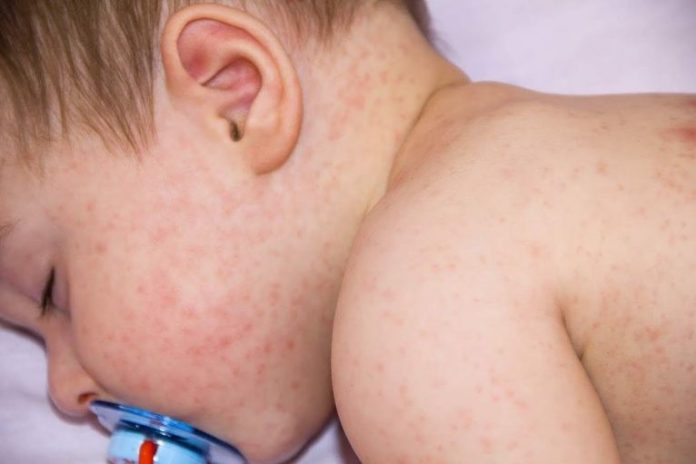Are you concerned because your baby develops rashes, itching and swelling of the mouth, or any other syndrome after having a particular type of food? If it happens frequently, you should read this article because your child suffers from baby food allergies.
It is not easy to identify food allergies. For many babies, the first sign is chronic a topic dermatitis or eczema, which are dry, itchy patches of skin appearing on the face, kneecaps, and elbows. Other symptoms can be itching and swelling of the face, mouth, and lips, rashes, watery eyes, vomiting or diarrhea, wheezing, or loss of consciousness.
If your baby is allergic to any baby food, his immune system will react whenever he ingests it by releasing antibodies to fight it off. This process starts with the symptoms mentioned above.
If he consistently has any of the above symptoms within two hours of swallowing a particular food, then take your baby to a pediatric allergist for testing. After asking detailed questions about your baby’s symptoms, the allergist might ask for a skin or blood test to determine whether the symptoms are due to an immune reaction.
If the skin test produces a rash or the blood test shows antibodies to the food, he’s allergic. The allergist can tell you which food or foods are causing the problem. Once you know the source of the allergy, it is better to avoid that food since no shots or medicines work for it.
However, avoiding a particular food might be challenging since foods can appear anywhere, and even a little bit of that may trigger an allergy. Therefore, you must read the baby food bottle labels, know which ingredients to avoid, and inquire about ingredients in restaurant dishes.
Some websites can help you identify and steer clear of allergy-inducing baby foods. You should always call the manufacturer if you are unsure about a product’s ingredients.
If you are a nursing mother and find your baby is allergic to a specific food, you have to give up the food yourself. Your breast milk can transfer the allergenic proteins to your baby, originating from the proteins that trigger allergies in your body.
If your baby has severe allergic reactions, immediately call for the help of paramedics. Don’t try to call the doctor or drive him to the emergency room since this might cause more severe problems that may result in his choking.
Be always prepared that if your baby has reacted to food, it might happen again. Take the doctor’s recommendations for that. The doctor might suggest that you carry a shot of epinephrine, called EpiPen.
Since food allergies are usually genetically inherited, it is impossible to prevent them altogether. A way to reduce the risk is by abstaining from offering babies foods that could trigger allergies until they are more physiologically resilient.
When your baby starts eating solids, you must take proper care while introducing him to new foods. Start to give him the foods in small quantities and watch how his immune system reacts. You can identify the problem food and immediately remove it from his diet through this approach. Many children suffering from allergies due to dairy products generally grow out of these allergies by the time they are 2 or 3.
At that point, you must take your child to the allergist to check whether letting him have the dairy products is acceptable. But allergies to peanuts, fish, shellfish, wheat, and eggs generally last a lifetime. So, all you mothers out there, if your baby is suffering or has suffered from a baby food allergy, take the proper measures to cure it.

